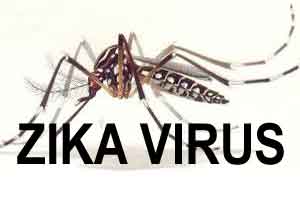- Home
- Editorial
- News
- Practice Guidelines
- Anesthesiology Guidelines
- Cancer Guidelines
- Cardiac Sciences Guidelines
- Critical Care Guidelines
- Dentistry Guidelines
- Dermatology Guidelines
- Diabetes and Endo Guidelines
- Diagnostics Guidelines
- ENT Guidelines
- Featured Practice Guidelines
- Gastroenterology Guidelines
- Geriatrics Guidelines
- Medicine Guidelines
- Nephrology Guidelines
- Neurosciences Guidelines
- Obs and Gynae Guidelines
- Ophthalmology Guidelines
- Orthopaedics Guidelines
- Paediatrics Guidelines
- Psychiatry Guidelines
- Pulmonology Guidelines
- Radiology Guidelines
- Surgery Guidelines
- Urology Guidelines
Scientists Genetically Engineer Zika Virus Clone

New York : In a pioneering effort, a team of researchers has genetically engineered a clone of the Zika virus strain.
According to them, cloning the virus can help in the development of counter-measures and exploring how or whether the Zika virus has evolved to spread more quickly and cause more severe diseases in people.
"The Zika clone, together with mosquito infection models and the Zika mouse model, represent a major advance towards deciphering why the virus is tied to serious diseases," said lead author Pei-Yong Shi, professor at the University of Texas Medical Branch, US.
In the study, the team first individually cloned five genome fragments and then assembled them together to form the Zika virus clone. The researchers then used the Zika mouse model to demonstrate that the cloned virus infected the mice and gave them neurological disease.
The team fed Aedes aegypti mosquitoes, one of the mosquito types known to transmit Zika, with human blood infected with either the parental Zika virus or the "man-made" Zika virus and found that the number of infected mosquitoes was similar.

Disclaimer: This site is primarily intended for healthcare professionals. Any content/information on this website does not replace the advice of medical and/or health professionals and should not be construed as medical/diagnostic advice/endorsement or prescription. Use of this site is subject to our terms of use, privacy policy, advertisement policy. © 2020 Minerva Medical Treatment Pvt Ltd